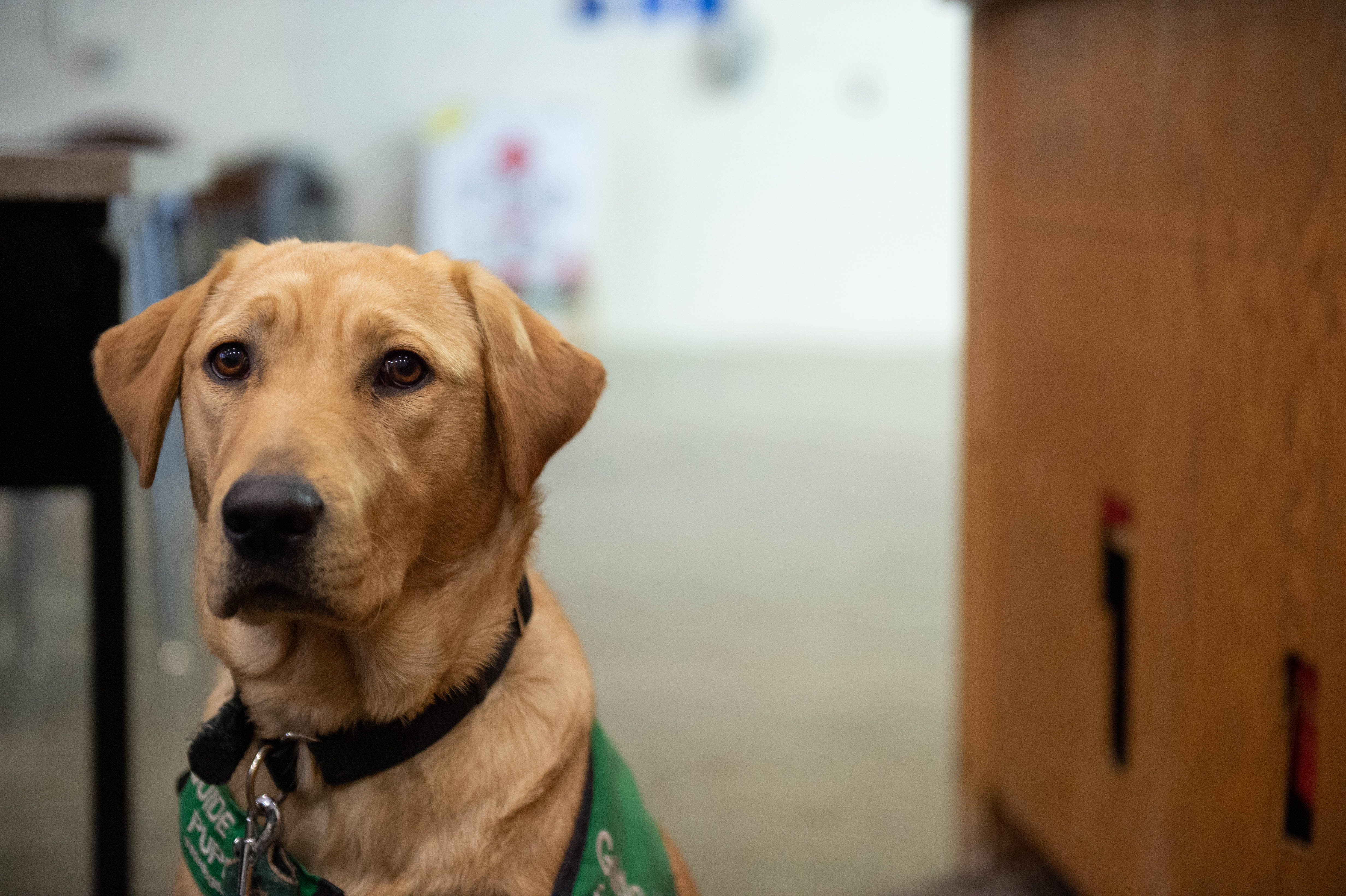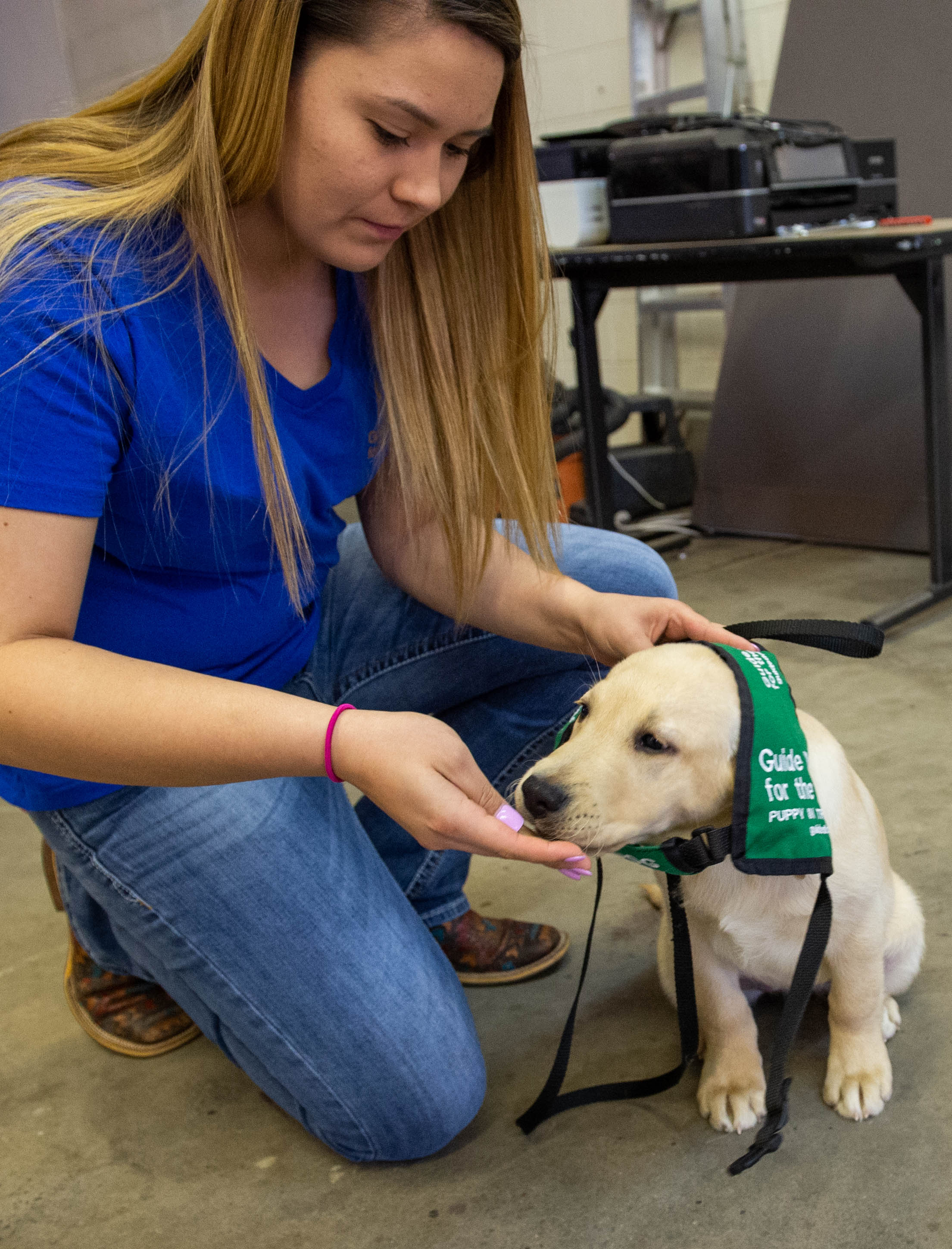NMSU’s FIDO LAB offers hands-on approach in dog behavior and training


Follow the paw prints inside the Tejada Building at New Mexico State University, and you’ll find an open-concept classroom that houses the FIDO LAB, the hub for the companion-animal program in the College of Agricultural, Consumer and Environmental Sciences, where students engage in hands-on learning with man’s best friend.
NMSU’s FIDO LAB, short for the “Facility for Investigating Dog/Owner Learning and Behavior,” opened in 2017 under the direction of Dr. Gaylene Fasenko, an associate professor in the Department of Animal and Range Sciences who came to NMSU in 2010 to develop a companion-animal program.
NMSU now offers the only human-animal interaction undergraduate minor in the U.S. The 18-credit program consists of six animal-companion classes, including an internship, and is open to all NMSU students.
“I thought this would be a great opportunity for all students at NMSU to have additional training that would make them more marketable in the workforce,” Fasenko said. “Students whose majors are outside the College of ACES – psychology, sociology and criminal justice – are discovering there are new ways to incorporate companion animals into their chosen careers.”
The FIDO LAB also serves as headquarters for NMSU Community Puppy Raisers, a student club whose members raise young dogs in partnership with Guide Dogs the Blind, a California-based, nonprofit organization that prepares guide dogs to serve individuals who are blind or have low vision throughout the United States and Canada.
The club has been active for more than a year and has a membership of about 30 to 40 students, who meet every week in the FIDO LAB. Most of the students in the club are “puppy-sitters,” but a few are “puppy-raisers.”
Puppy-raisers receive a puppy from Guide Dogs for the Blind when the dogs are about 10 weeks old. They are responsible for caring for their assigned dogs 24/7, including housing them in their homes or dorms. The goal is to train the dogs in basic obedience and good public behavior over a 12- to 14-month period.
“We want to raise very confident dogs that can think for themselves and are well socialized,” Fasenko said. “These dogs will literally be saving their handlers from danger every day while providing lots of unconditional love.”
Guide Dogs for the Blind covers the cost of veterinary care, but the club is responsible for the purchase of food, equipment and toys. Monetary donations from the public to the club help offset these costs.
Shinaye Smith, a student studying animal science at NMSU and the president of NMSU Community Puppy Raisers, started raising a puppy, Kondo, earlier this year.
“It’s been good so far. There’re definitely quite a few challenges. This is her first week out in public,” Smith said. “She went to my classes. We have to take the dogs everywhere with us.”
Kondo is one of five puppies that the club is currently raising. Once the dogs are between 14-18 months of age, they travel back to San Rafael, California, where Guide Dogs for the Blind is based, to begin guide-dog training.
Fasenko said she enjoys seeing the students in the club building lasting friendships.
“We’re creating a community, and that can make a huge difference in student retention at NMSU,” she said. “Through this service-learning partnership with Guide Dogs for the Blind, the students also have the opportunity to give back, not just on a local basis, but nationally.”
During a club meeting this spring, Smith practiced commands with Kondo in the FIDO LAB.
“We keep reminding ourselves that this is going to be a huge deal for a blind person someday because it’s going to give them so much more opportunities,” she said. “I hope to gain a better understanding of visually impaired people and the struggles they go through every day.”
Noting the organization’s motto, “raise a puppy, change a life,” Fasenko said, “When we first started, we thought that saying was directed towards changing the life of the visually impaired person; we didn’t realize how much this would positively change our lives.”
To donate to NMSU’s companion-animal program, visit https://advancing.nmsu.edu/givenow and search for “Companion Animal Program,” under the “Fund” tab. For more information about the human-animal interaction undergraduate minor, or to donate to the NMSU Community Puppy Raisers, contact Fasenko at gfasenko@nmsu.edu.


